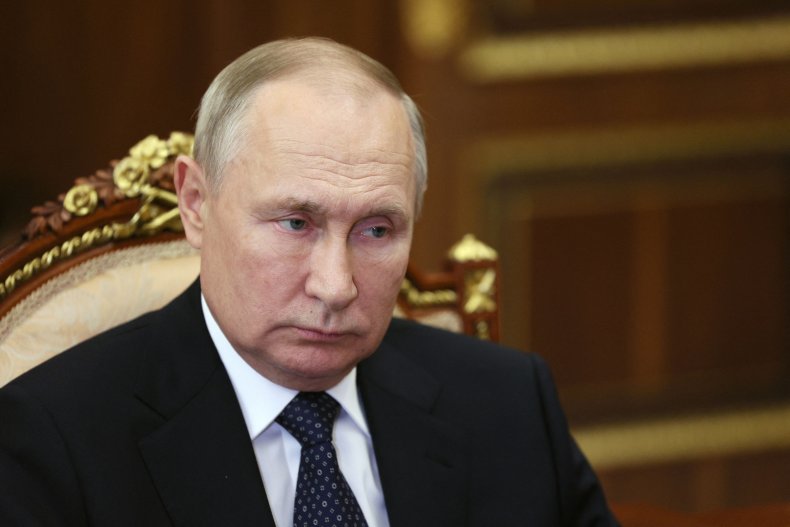Russian President Vladimir Putin has reportedly been forced to reprioritize his long-term military industrial projects to equip and arm his troops in Ukraine.
Putin has been left reeling from sanctions that have impacted Russia’s production of weapons, while his botched mobilization has seen well-publicized complaints from drafted troops about a lack of gear. Cut off from the global supply chain, Russia is turning to Iran for drones and reportedly to North Korea for munitions.
The Kremlin website revealed on November 10 that Russian Prime Minister Mikhail Mishustin and Defense Minister Sergei Shoigu have been tasked “to meet the needs” of Russia’s armed forces.
They were ordered to outline by November 14 how they would “improve the quality of products” supplied to troops during the “special military operation,” referring to the war.
Gavriil Grigorov/Getty Images
A Russian defense ministry source told newspaper Vedomosti the order “is based on the real needs of the troops” and not Russia’s State Armaments Program (SAP), which is a military procurement plan agreed in 2018 and lasting until 2027, which is worth around 19 trillion rubles ($300 billion). That was an update of a wide-ranging program between 2011 and 2020 to modernize Russia’s anti-ship missiles, electronic warfare and air defense.
The plan promised cutting-edge T-14 Armata tanks, whose production has stalled, aircraft and thousands of helicopters. But the Russian army is fighting in Ukraine with old equipment and is believed to be exhausting its stocks of high-precision missiles.
Vedomosti reported that the terms of the SAP had been “suspended” to focus on the needs of the war in Ukraine.
“The fact that Russia is doing that publicly and announcing it is significant,” said Steven Horrell, a non-resident senior fellow with the Transatlantic Defense and Security Program at the Center for European Policy Analysis.
“It highlights something other than the ‘everything is going our way’ narrative the Kremlin has been putting out,” he told Newsweek.
The previous state armaments program from 2011 to 2020, some of which was focused on increasing Russia’s swagger in the Black Sea region, “essentially empowered Putin to feel like he had the military power” to annex Crimea in 2014 and later “take this action in Ukraine.”
Click Here to Read the Full Original Article at Newsweek…

